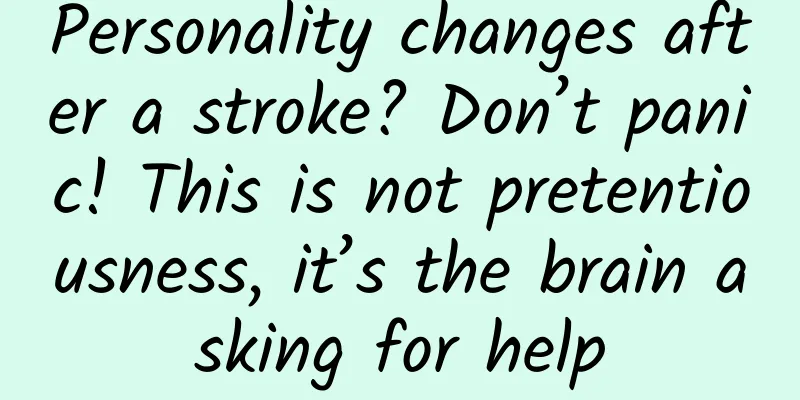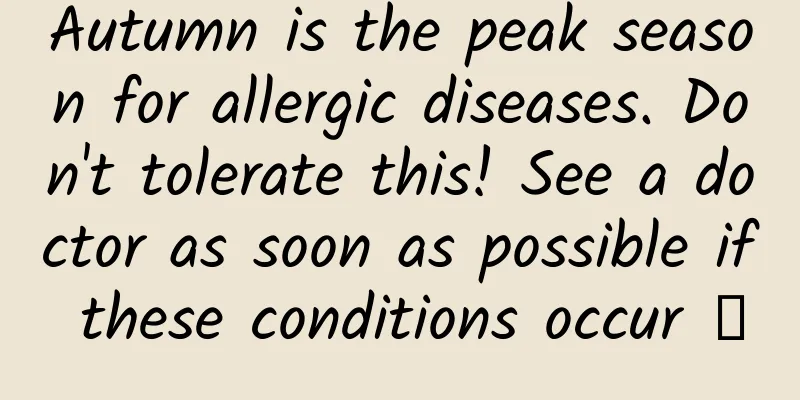Personality changes after a stroke? Don’t panic! This is not pretentiousness, it’s the brain asking for help

|
After Grandpa Zhang was discharged from the hospital after suffering a stroke, he seemed like a different person. The gentle old man suddenly smashed things in the middle of the night, did not sleep all night, and pointed his fingers at his bed, always saying that the food was poisonous. He even could not recognize his wife who had been with him for 50 years. The family had no choice but to take Grandpa Zhang to the Department of Psychiatry (Male) of Physical Diseases of Hunan Second People's Hospital (Provincial Brain Hospital) for treatment. Chief physician Peng Fuzhi received Grandpa Zhang and after a series of examinations and tests, he was diagnosed with organic brain mental disorders and sequelae of cerebral infarction. Fortunately, after treatment, Grandpa Zhang's mood gradually improved and he was able to communicate normally with his family. Today, Tang Li, director of the Department of Psychiatry (Male) of Somatic Diseases and chief physician, wants to talk to you about this easily overlooked health hazard - mental disorder after cerebral infarction. 1. Why do mental disorders occur after cerebral infarction? Cerebral infarction, medically known as cerebral infarction, is a localized ischemic necrosis or softening of brain tissue caused by impaired blood supply to the brain, ischemia, and hypoxia. When a cerebral infarction occurs, the normal function of the brain is destroyed. The brain is the "headquarters" of the human body, and each area has a specific function. Cerebral infarction can damage certain brain areas and affect the signal transmission between nerve cells and the balance of neurotransmitters. For example, when brain areas related to emotion regulation and cognitive function are damaged by cerebral infarction, mental disorders may occur. Infarctions in the frontal lobe and temporal lobe are often closely related to mental and behavioral abnormalities. 2. What are the symptoms of mental disorders after cerebral infarction? 1. Cognitive impairment Many patients will experience memory loss after a stroke, forgetting what they just said or did. Some patients have difficulty concentrating, and tasks that were once familiar become difficult to complete, such as not knowing how to operate a tool that they used to be proficient in, which seriously affects their daily lives. 2. Abnormal emotions It is common for patients to have mood swings. Some patients become depressed, sighing all day, losing interest in anything, and even having suicidal thoughts; others become easily excited and irritable, get angry over trivial matters, and frequently clash with family members and medical staff. Others become anxious, inexplicably nervous and uneasy, and worry about things that have not yet happened. 3. Psychiatric symptoms Some patients experience hallucinations, such as seeing non-existent people or things, and hearing voices that others cannot hear; some patients experience delusions, believing without any basis that they are being persecuted or monitored, or that they have special abilities, etc. These mental symptoms not only cause pain to the patients themselves, but also cause great distress to their families. 3. How to deal with mental disorders after cerebral infarction? 1. Seek medical attention promptly Once a cerebral infarction patient is found to have abnormal mental behavior, he or she must go to the hospital as soon as possible. The doctor will make a clear diagnosis and develop a personalized treatment plan through detailed interviews, neurological examinations, brain imaging examinations (such as CT, MRI), and psychiatric and psychological assessments. 2. Comprehensive treatment Treatment of post-stroke mental disorders usually adopts a combination of drug therapy and psychotherapy. In terms of drug therapy, doctors will choose appropriate drugs according to the patient's specific symptoms, such as antidepressants, antianxiety drugs, antipsychotics, etc., to improve mood and mental symptoms. At the same time, psychotherapy is also very important. Professional psychologists will help patients adjust their mentality, correctly understand the disease, and enhance their confidence in coping with the disease through cognitive behavioral therapy and supportive psychotherapy. 3. Home care The company and support of family members are crucial to the patient's recovery. Family members should give patients enough patience and care, and understand that their emotional changes and abnormal behaviors are not intentional. In daily life, patients should be helped to have a regular schedule, arrange a reasonable diet, and be encouraged to perform appropriate rehabilitation exercises, such as walking and simple physical exercises, to promote physical and psychological recovery. Although post-stroke mental disorder will bring challenges to patients and their families, as long as we raise awareness, detect it in time and actively treat it, we can effectively control the symptoms and improve the quality of life of patients. I hope everyone can share this knowledge with more people around them, so that more people can understand post-stroke mental disorder and protect their health together. Hunan Medical Chat Special Author: Peng Fuzhi, Male Ward, Department of Psychiatry, Department of Physical Diseases, Hunan Second People's Hospital (Provincial Brain Hospital) Follow @湖南医聊 to get more health science information! (Edited by Wx) |
>>: You will have a gastrointestinal endoscopy soon. Is your gastrointestinal tract ready?
Recommend
How should girls train their abdominal muscles?
I believe that when many friends hear the word ab...
How many months of pregnancy is it easy to have miscarriage?
Every baby is a gift from God, so expectant mothe...
What are the signs of pregnancy?
We all know that pregnancy is a major event in li...
What should I do if my menstruation is still not clean after medical abortion?
Many young women often have unexpected pregnancie...
Can postpartum disease be cured within 100 days?
Women are weak after giving birth and need a long...
Surgical treatment steps for Bartholin's gland cyst
If the Bartholin's gland cyst is severe and a...
Can you eat expired chocolate that has been refrigerated? What to do with expired chocolate?
Chocolate is made from a mixture of various ingre...
What does low antithrombin mean?
Antithrombin 3 is a very important anticoagulant ...
Clinical manifestations of malignant and benign uterine cysts
I believe everyone knows the importance of the ut...
What gynecological disease causes acne in women?
Acne is the most annoying thing, especially for w...
If I get pregnant without any preparation, will the baby be healthy?
In the 21st century, people pay more and more att...
How to do pelvic floor muscle training before childbirth?
Pregnancy and childbirth are physiological proces...
Is bloating a symptom of pregnancy?
Some people define these abdominal symptoms as pr...
Why do stretch marks itch?
I believe that women who have given birth are no ...
This article will show you the symptoms and care of "cerebral thrombosis", the killer of hemiplegia
Cerebral thrombosis refers to ischemic necrosis o...









